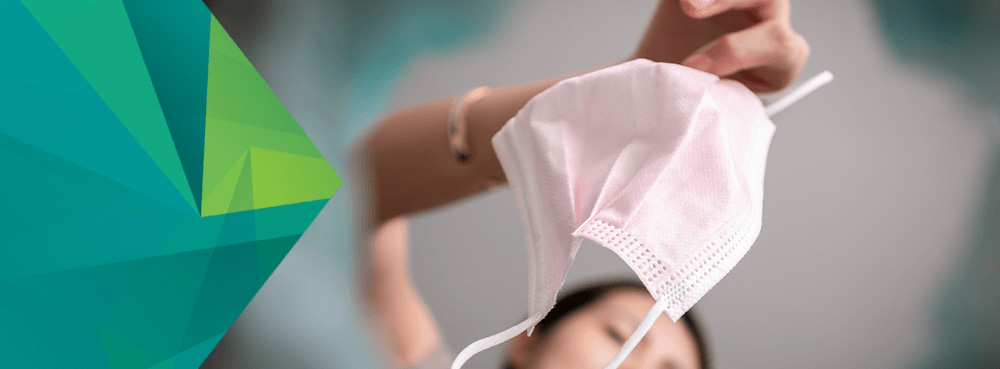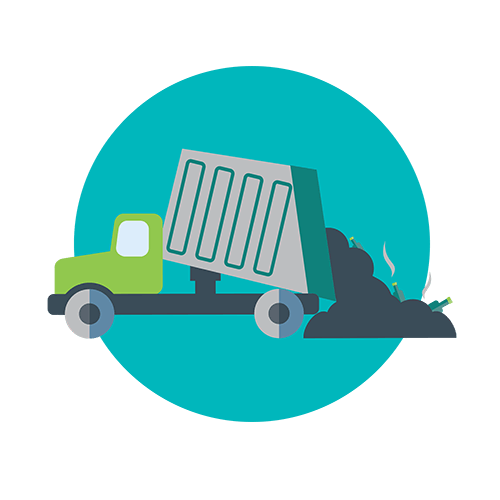Biohazardous Waste and the Environment: The Importance of Proper Waste Disposal

IN THIS BLOG:
2 / Hazardous medical waste and human health
3 / Hazardous medical waste and the environment
4 / How effective medical waste disposal management helps keep the planet healthy
Introduction
On average, we generate approximately 0.5 kgs of hospital waste per bed, per day in the developed world (underdeveloped regions are believed to generate 0.2 kg per bed per day). While much of this waste is general (non-risk), the rest can be classified as biomedical waste, sharps waste, cytotoxic waste, pharmaceutical waste, and hazardous chemical waste. Understanding each stream and its environmental impact is crucial to ensuring biomedical waste is treated sustainably.
Biohazardous medical waste, improperly handled and discarded, can compromise the quality of life of every living thing in the environment. It can contaminate the water supply, poison wildlife, and threaten the health of people living in communities in proximity to the medical refuse. The effects can be insidious and sometimes take years to identify – or they can be immediate, as with improperly handled and discarded sharps that injure people through cuts or needlesticks.
We tend to think of the possibility of pathogenic infection as the biggest risk from improperly handled medical waste, and while that is a significant danger, there are other potentials for harm – some of them quite significant and long-term.
Hazardous biomedical waste and human health
Hazardous biomedical waste can affect human health in a variety of ways. From pharmaceutical waste that enters the water supply to radioactive waste that emits particulates that cause a wide range of illnesses, poorly managed medical wastes can turn into a public health disaster.
People exposed to biohazardous waste can develop a wide range of symptoms and illnesses. Radioactive medical waste is particularly destructive, and has been known to cause the following urgent medical concerns:
- Burns
- Degradation of living tissue
- DNA damage that can potentially lead to cancers
Pharmaceutical waste – waste from unused drugs and vaccines – can poison people who inadvertently ingest it.
Poorly handled and discarded sharps – needles, scalpels, used glass plates – can cause serious injury and spread pathogens, including potentially serious infections such as:
- Hepatitis B
- Hepatitis C
- Antibiotic-resistant and methicillin-resistant Staphylococcus aureus (MRSA)
Although direct and indirect contact with hazardous medical waste can cause serious health issues to the human population, environmental contamination can create conditions that lead to ecological damage that ultimately has a significant impact on our ability to access natural resources that are essential to survival.
 Hazardous medical waste and the environment
Hazardous medical waste and the environment
Environmental contamination affects the water we drink, the air we breathe, and the biological diversity that allows ecosystems to thrive. This can have a catastrophic effect on agricultural systems and compromise our food supplies.
The accumulation of toxins and contaminants is a major concern. Pathogenic waste can spread fungi and parasites to animals and plants in the wild, causing disease that destroys ecosystems over time. Radioactive waste can lead to mutations in living organisms and dramatically change wildlife behaviors. This threat to the ecological stability in our forests won’t happen overnight, but could take years and possibly generations to manifest themselves into recognizable aberrations.
The importance of safe medical waste disposal and management
Daniels Health is committed to giving healthcare providers and all services that generate biohazardous waste the tools and support they need to handle and dispose of their medical waste safely and effectively. Through effective staff training, access to exceptional disposal products and solutions, and a comprehensive understanding of biomedical waste disposal compliance, Daniels Health can support your waste management objectives. For more information about our services or to request a proposal, please contact us today.
Let's Talk!
Your time is valuable, and we don’t want to play hard to get. You can either phone us directly on the details listed on our contact page, or feel free to fill out this short form and one of our team members will get back to you as quickly as possible.
